- Home
- Jason Pinter
The Stolen Page 12
The Stolen Read online
Page 12
“Rowland,” Amanda said. “That name rings a bell.”
“It should. John Rowland resigned from office as governor of the state of Connecticut in 2004 due to charges of massive corruption. Mail fraud, tax fraud, he even served ten months in a federal prison.”
“And this guy was running the state when Michelle disappeared?”
“Kind of like having a crack addict babysit your children. Rowland was skimming money for numerous personal projects that had nothing to do with the state. He took state money and paid for improvements to his weekend cottage, took thousands of dollars in gifts from his subcontractors. Of course, after prison he did the whole rehab-image deal, everything but appear on the cover of People magazine. Anyway, Talbot came in after Michelle disappeared and tore Rowland a new one for letting the state go to seed. He said the state was not protecting its youth. At the time, Meriden had the second-highest crime rate in the state, and it had gotten worse over the previous few years. Even though Talbot was a New York senator, he was quoted as saying, ‘This is a matter so vital to the future of our country that it would be irresponsible to only permit coloring within state lines.’”
“So Talbot ruins Rowland, then what?”
“Talbot institutes a program called ‘Not on Our Watch.’ He raises millions of dollars earmarked for improving security within Meriden and other surrounding counties. More money for police recruiting, neighborhood watches, more incentives for gang members and criminals to become informants. He raises thousands of dollars for the Oliveira family, basically seals up trust funds for their other children to go to college. Within two years, the crime rate in Meriden drops like a rock. He spent years working to help the Oliveiras move on with their lives.”
Amanda said, “And now this guy is knocking on Wallace’s door telling him to let the city move on. It sounds to me like Talbot is a guy who worked his ass off to rebuild a community, then sees some punk reporter, no offense…”
“None taken…”
“…digging around, looking for holes in the masonry.”
“Not to mention the most interesting part,” I said. “Michelle Oliveira grew up in Meriden, but guess where she was born?”
“I don’t know, where?”
“Hobbs County.”
“Like Danny Linwood?” she said. “Holy shit, that’s a hell of a coincidence.”
“Or maybe not,” I said. “Guess where our favorite senator also grew up?”
Amanda looked at me. She said, “No way…”
“That’s right, Hobbs County for two hundred, Alex.”
“So this guy has taken protecting his own to a whole new level. No wonder as a New York senator he decided to stick his nose into another state.”
“What’s also strange, though, is that both Meriden and Hobbs County were essentially cesspools before Michelle Oliveira and Daniel Linwood were kidnapped. Since Talbot came in, they’ve seen unprecedented growth and community support.”
“Talbot seems to have done his job well,” she said. “There are certainly enough shitty neighborhoods in New York, maybe he should take care of his own backyard for a bit.”
“That’s why he was at Danny Linwood’s home the day I interviewed him,” I said. “He is looking out for his own backyard. Literally.”
“What are you thinking we should do?” she asked.
“I’m not sure,” I said. “But it concerns me any time a politician does something for the alleged good of the community. It makes me wonder what the quid pro quo is.”
“Well, how has Talbot’s career been affected since Michelle Oliveira and Danny Linwood came back?”
“Well, he’s won by a landslide every time he’s run for reelection,” I said. “One would assume at some point he’ll want to move from the senate to the governor’s mansion. All that good press can’t hurt.”
“You think we might be a little too cynical?” Amanda said. “I mean, this guy seems to have legitimately changed lives. Maybe even saved a few. For all the politicians that talk a big game, this guy actually gets his feet dirty. Yet he ruffles a few feathers at your office and we’re ready to string him up.”
“I’m not doing anything like that,” I said defensively. “But I need to know why two children disappeared into thin air, reappeared years later with no memory of where they went, and nobody seems to be looking too hard into that fact. I have no idea if Gray Talbot is the greatest Samaritan of all time or Jack the Ripper in a good suit. I just want the truth. And one thing I’ve learned in this job is that anytime somebody tells you not to look under that rock, there’s something there they don’t want you to find.”
“And now you’re going to lift that rock. Even if it means your job.”
“Even if it means your job,” I said, looking her dead in the eye. Amanda seemed taken aback, then she took a breath and calmed down.
“Guess I should have expected that.”
“I’m sorry, I—”
“Don’t be sorry. I want to respect you. If you pulled punches, I wouldn’t.”
“Sometimes I hit harder than I need to. Against people who don’t deserve it.”
“Yeah…” she said, eyeing me warily. “I think it’s time for me to head home.”
“You’re sure?” I said. “You want to grab dinner or something?”
Amanda looked at me, sadness in her eyes. “Henry, this is what it is. I’ll help you all you need. I want to know everything about Danny and Michelle, too. But this is what we are, now, you and me. And this is a choice you made.”
“What was your choice?” I asked.
She looked at me, her cheeks flushing red, anger in her eyes. “I didn’t have one,” she said. “You made my choice for me.”
“I know. And I’m sorry I did that. I wish I could take it back. More than anything.”
Amanda took a step closer, her eyes locked on to mine. For a moment I felt embarrassed, wanted to step back.
“Two years ago,” Amanda said, “you came clean about who you were. I had a choice. I could have left you on the side of the road for the assholes who wanted you dead. Or I could help you. I made my choice. And here we are. I didn’t leave you then, and I wouldn’t have left you ever. You decided to make my choice for me. And since you did that, I’m not going to put myself in another situation where someone can dictate my future without my say-so. It’s my life, Henry, and if you don’t like what I do with it, you should have never gotten into my car in the first place.”
I finally stepped back, felt like I’d been slapped across the face. Though I had no one to blame but myself. “So what are we, then?” I asked.
Amanda walked forward until I could smell the light perfume that she must have put on before work. Because she sure didn’t wear it for me.
“We’re friends,” she said. “Good friends. I’ll help you however I can with this. But just with this. That’s my choice. So either you can deal with it or you can’t, but if you can’t, say something now. Otherwise don’t waste my time.”
“I have nothing to say. I appreciate it. So will Danny Linwood.”
I sat back down. Took out the papers Amanda had given me regarding Michelle Oliveira’s disappearance. I began to go through them again. Amanda stood there in the hall for a moment, then came and sat down next to me. She looked over my shoulder.
“Do you mind?” she asked. She didn’t quite phrase it as a question. She knew there wasn’t a chance in hell of me minding. I smiled. Told her I didn’t.
Then I noticed something on Michelle’s medical reports. She used a pediatrician in Hobbs County for several years before moving to Meriden. I looked at the name on the birth certificate, the signature of the man who delivered Michelle Oliveira.
“What is it?” Amanda asked.
“Michelle Oliveira was born at the Yardley Medical Center in Hobbs County,” I said.
“And?”
“The doctor on this birth certificate is named Dmitri Petrovsky,” I said. “The same Dmitri Petrovsky who treat
s Danny Linwood.”
17
The girl sat on the couch, listening to the two grown-ups speak as if she wasn’t even there.
“I heard her coughing last night,” Elaine Reed said. It was cold inside the house. The girl watched with curiosity as Elaine held a cup of tea to her cheek. She’d heard Elaine’s husband, Bob, say something about not being able to work the fireplace. Bob talked loud sometimes, and used words that Elaine got mad at him for.
Elaine was a pretty woman, only a little younger than her own mom. She had bright red hair and always wore pretty blue jewelry. When the other day the girl asked what kind it was, Elaine told her that her own daddy had brought it back from Greece. She said the rocks there were as blue as the sea itself.
Bob was shorter, with thinning dark hair and a beard that circled only his upper lip and chin. He wore glasses and didn’t say much and spent most of the day reading books and newspapers. He seemed to like to argue about politicians, people he said were doing this country more harm than good. Elaine always nodded and smiled when he talked like that, but didn’t really seem to have any opinions of her own in that regard.
The house was so huge, bigger than her old one, and the girl was scared to walk around alone. Not that she ever had to, since Elaine insisted on holding her hand almost everywhere she went. The girl felt strange, this woman she’d just met acting so friendly, but Elaine was nice and it meant not having to be scared. Even though she was still confused, the girl loved running up and down the lengthy hallways, laughing as Bob helped her slide down the banister. Elaine placed both of her hands around the cup, took a sip and placed it on the wooden table. Bob picked it up, frowned at her, then took a glass coaster emblazoned with a bright yellow sunflower and put the cup back down on it.
“She might just have a cold,” Bob said. “Kids get colds. Not everything is a life-threatening disease.”
She’d heard Elaine mention that the Reed family had lived in this house for just six months, and still hadn’t quite grown used to its nooks and crannies, the way it creaked during high wind, the way the linoleum was cool in the spring and hot in the summer. Yet for all the comfort, Elaine said she still felt isolated. The days were sunny and clear, and when the windows were left open the girl could see the trees, high oaks. And the fence surrounding the property.
Bob Reed had a bit of a temper. Or as her daddy would say, his blood got up something. Bob complained that they had to drive three miles just to see a human being. And he had to fiddle with some sort of remote control to work a “stupid” motor-controlled gate that allowed access to the driveway. Not to mention some brick wall that obscured the surrounding area. Elaine would put her hand on Bob’s shoulder and say, “We know why this is happening. We need to make the best of it.” Bob would look at her, nod, then go off on his own.
But right now they seemed concerned. A few days ago, the girl had come down with a cold. She felt shivery and warm at the same time, and no matter how many blankets Elaine piled on top of her it never went away. When they first realized she was sick, Bob and Elaine grew pale, and this scared the girl.
“Kids cough,” he said now, trying to be strong. “Look at Patrick. Hawked up a ball of phlegm every night until he turned three.”
“Well, this one is six,” Elaine said. “And that coughing doesn’t sound right. Maybe we should take her to see someone.”
“Not him,” Bob said. “I don’t trust that man.”
“Neither do I, but we have to. He told us if we ever needed medical help, we had to see…”
“Screw that crazy, scarred-up old man,” Bob said. “He doesn’t have to live like this. He didn’t have to change his life for some strange kid.”
“Patrick,” Elaine said. “Think of Patrick.”
Bob sighed, put his head in his hands. “Her cold will pass,” he said, reaching for the newspaper. “Can’t even get the newspaper delivered because ‘he’ said so.”
“Speaking of which,” Elaine said, “I think it’s time for her shot.”
Bob nodded. He said, “I’ll do it this time.”
He stood up. Headed toward the bathroom. A minute later Bob came back carrying a plastic bag.
He opened the bag and took out a gauze pad, a syringe, a small vial and a bottle of clear liquid that smelled funny. The girl watched all this. It all seemed vaguely familiar. And though that needle looked huge, like the size of a knife, for some reason she wasn’t scared.
“Did you wash your hands?” Elaine asked.
“Of course,” Bob replied. He took the small vial and rolled it gently between his fingers. Next he took a cotton ball, opened the bottle of clear liquid, held the ball against the open top until it was wet, then cleaned the top of the vial with the cotton ball.
“That smells funny,” the girl said. Elaine scrunched her nose and smiled.
“It does, doesn’t it?”
Bob didn’t smile. He just kept doing what he was doing.
Bob took the syringe and pulled the stopper back a little bit. Then he pushed the needle into the top of the vial, pressing the stopper again. A small bubble of air entered the vial. Then he turned the vial upside down, the syringe pointing at the ceiling, and pulled the stopper again until a small amount of the liquid was sucked into the syringe.
He tapped the syringe until the air bubbles had risen to the top of the needle. Then he removed the needle from the vial.
Bob turned to Elaine, still holding the needle. “Where did we give it to her this morning?”
“The abdomen,” she said.
“Gotcha. Caroline, would you come here?” The girl stood up warily, then went over to Bob. “Here, sweetie, sit down next to me.”
She did. Bob rolled up the sleeve of her right arm, then took the smelly cotton ball and rubbed it all over the underside of her arm. Then he blew on it gently.
“That tickles,” the girl said.
“Just needs to dry a bit,” Bob said. He waited a minute, then took her arm and gently squeezed her skin until a fold stuck out. Caroline winced a bit but stayed still.
“Good girl,” Elaine said.
“Now close your eyes,” Bob said. When she did, she felt a sting as the needle entered her skin. She felt Bob’s grip tighten, then a few seconds later it eased up. She opened her eyes. The needle was on the table and Bob was swabbing her arm with another cotton ball.
“You’re such a brave girl,” Elaine said. Caroline smiled.
18
The rental car zipped along like only a Hyundai with a hundred-and-twenty-five thousand miles could. Now that I’d been summarily dismissed from the Daniel Linwood story by Wallace, I couldn’t expect to be reimbursed for expenses anytime soon. Which meant watching my budget until I proved that it was worth potentially disrupting the lives of several families, not to mention putting my career on the line, to find out what happened to two missing children. Which meant that, for the time being, the $44.95-a-day rates of the Rent-a-Wreck of Yonkers was the only thing that could fit my ever-extended budget.
As soon as I realized that both Michelle Oliveira and Daniel Linwood not only were born in the same hospital, but were treated by the same doctor, I decided to speak to this man to see what, if anything, he could shed light on. Dr. Dmitri Petrovsky worked in the pediatrics unit at the Yardley Medical Center in Hobbs County. Amanda and I were on our way to speak to the good doctor. Like good guests we were coming uninvited.
As I drove up I-287, Amanda gripped the side door handle as though the car might split in half at any moment. Ironic, considering a few years back Amanda had driven us to St. Louis at an average speed that would make Jeff Gordon cry for mama.
I noticed her clutching the side, smirked and said, “Come on, you really think I’m going to spin out or drive us both into the Hudson? Besides, between the two of us, who do you think has racked up more points on their license?”
She glared at me. “I’ve never had an accident in all the time I’ve been driving. And I’ve been in a car wi
th you, oh, a total of, like, three times. Forgive me if I don’t quite trust your instincts. Not to mention my Toyota was sturdier than the Verrazano bridge.”
“I have such fond memories of that car.”
Though Amanda and I had now been on speaking terms for just a few days, I was surprised at how easily we fell back into old patterns, the give-and-take of conversation. I was actually uncomfortable with it. Specifically, the fact that she seemed so calm. As if she knew our banter was nothing more than that, and would never get past the surface.
Two young children, both vanishing into nothing, reappearing after years, neither with any memory of their time gone. Both having been born in the same town, to low-income families with other siblings. I had no idea exactly what we were looking for, or what I expected to find, but I hoped that Dmitri Petrovsky, having borne witness to the birth of both Michelle and Danny, could yield new information.
We arrived at Yardley Medical Center a little after nine in the morning.
We stepped out of the Hyundai. It was warm outside, the sun hot and vivid. I was wearing a pair of brown khakis and a navy-blue sport coat. Amanda was in a sweater and light blue jeans. She looked a millions times better than I did, which wasn’t surprising, since I had to dig through a pile of unmentionables just to find two matching socks.
The Yardley Medical Center was a long building, twelve stories high, shaped like an L, with one taller side made of red brick, the other, shorter part windowed by steel and blue glass. We walked around to the main entrance, passing ambulatory care, and entered. The lobby was not large, but it was impeccably clean. Off to the side was a flower shop, a newsstand and a small cafeteria, and another path leading to a bank of elevators. In the middle was an information desk and security checkpoint. Half a dozen people were in line. When they finished talking to the attendant, she handed them a sticker to show Security, who let them enter the elevator bank.
We walked up to the information booth. The attendant, a heavyset black woman, said, “May I help you?”

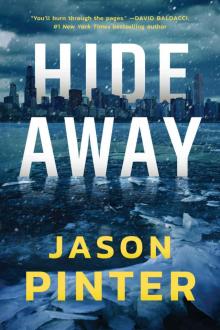 Hide Away (A Rachel Marin Thriller)
Hide Away (A Rachel Marin Thriller)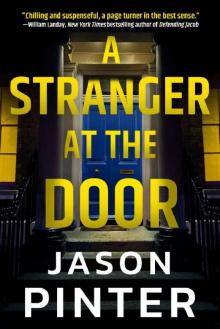 A Stranger at the Door (A Rachel Marin Thriller)
A Stranger at the Door (A Rachel Marin Thriller)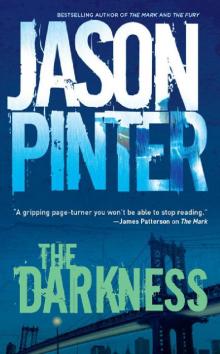 The Darkness hp-5
The Darkness hp-5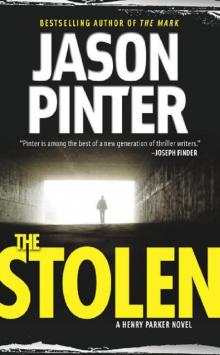 The Stolen hp-3
The Stolen hp-3 The Guilty hp-2
The Guilty hp-2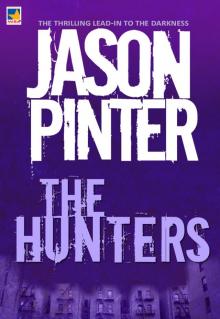 The Hunters
The Hunters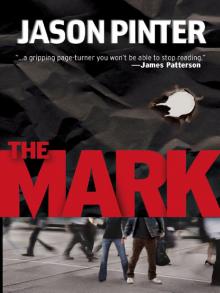 The Mark hp-1
The Mark hp-1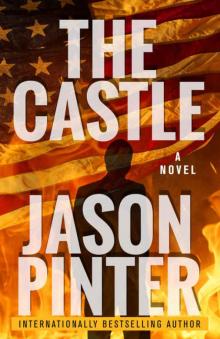 The Castle: A Ripped-From-The-Headlines Thriller
The Castle: A Ripped-From-The-Headlines Thriller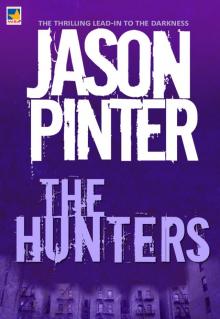 The Hunters (henry parker)
The Hunters (henry parker)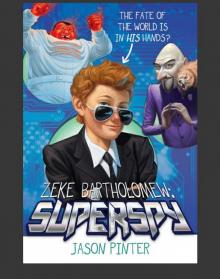 Zeke Bartholomew
Zeke Bartholomew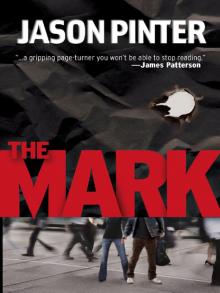 The Mark
The Mark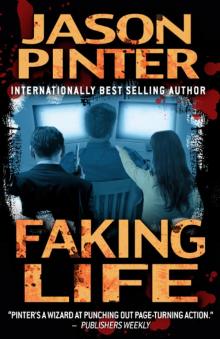 Faking Life
Faking Life![[Henry Parker 01.0] The Mark Read online](http://i1.bookreadfree.com/i2/04/08/henry_parker_01_0_the_mark_preview.jpg) [Henry Parker 01.0] The Mark
[Henry Parker 01.0] The Mark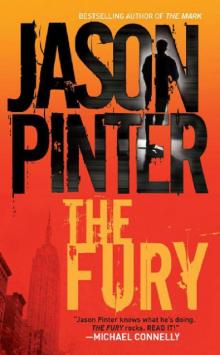 The Fury hp-4
The Fury hp-4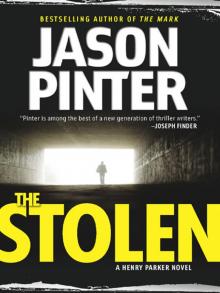 The Stolen
The Stolen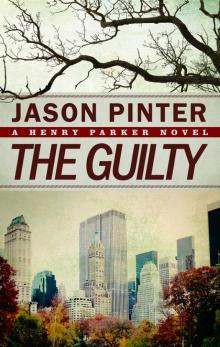 The Guilty
The Guilty